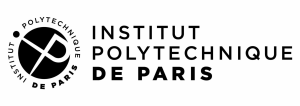Presentation
It is the innovative companies that, by creating the most value, manage to generate a sustainable and defensible competitive advantage. Major innovations often arise without consumers being aware of them. However, the new products and services launched are intended for them. This is why it is necessary to develop ethnographic observation methods to identify products and services as closely as possible to their practices.
Furthermore, contemporary issues, and in particular the ecological transition, encourage innovations to be part of ambitious environmental objectives. Innovation today is also societal. It is not simply aimed at the consumer and is part of a territorial and social acceptance. Thus this course, based on field projects carried out with numerous organisations (mobility, luxury goods, sport, food sectors, etc.), will enable participants to:
learn about contemporary consumer practices and cultures
discover how innovations are developed that involve customers, public authorities, residents, associations, etc.
identify the main issues associated with innovations in a context of ecological and social transition.
